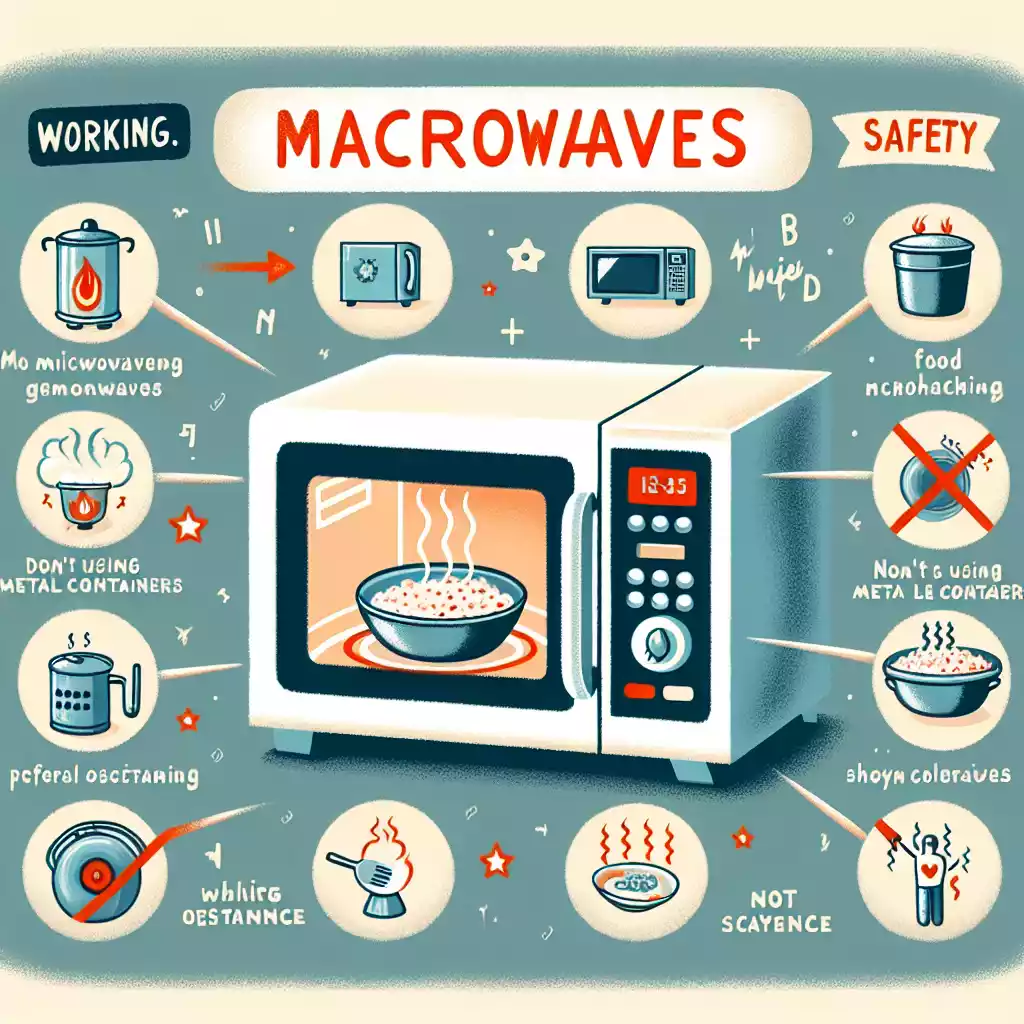Are Microwaves Bad for You?
Understanding Microwave Technology
How Microwaves Work
Microwaves use electromagnetic radiation to heat food. This technology, first developed during World War II, revolutionized cooking by reducing the time needed to heat meals. Microwaves generate waves that cause water molecules in food to vibrate, producing heat. This method cooks food quickly and efficiently, making it a staple in many households.
Common Uses of Microwaves
Microwaves are incredibly versatile. They’re used for reheating leftovers, cooking frozen meals, and even sterilizing kitchen items. The convenience they offer is unmatched, allowing people to prepare meals in minutes. But with this convenience comes a host of questions about their safety and health implications.
Health Concerns Related to Microwaves
Radiation Exposure
One of the primary concerns people have about microwaves is radiation. The term “radiation” often conjures images of nuclear reactors and harmful rays. However, the radiation used in microwaves is non-ionizing, meaning it doesn’t have enough energy to remove tightly bound electrons from atoms or molecules. Non-ionizing radiation is generally considered safe and is also found in other everyday devices like cell phones and Wi-Fi routers.
Nutrient Loss in Food
Another concern is whether microwaving food diminishes its nutritional value. Some studies suggest that microwaving can lead to nutrient loss, particularly in vegetables. However, this is not unique to microwaving. Any cooking method that involves heat can cause some nutrient loss. In fact, microwaving often preserves more nutrients than boiling because it uses less water and shorter cooking times.
Scientific Studies and Findings
Research on Microwave Safety
Numerous studies have examined the safety of microwave ovens. For example, a report by the World Health Organization concluded that when used according to manufacturers’ instructions, microwaves are safe and do not pose a health risk. Other studies have supported these findings, showing no significant evidence that microwaves cause harm when used properly.
Misconceptions and Myths
There are many myths surrounding microwaves. Some believe that microwaves cause cancer or that they make food radioactive. These misconceptions stem from a lack of understanding of how microwaves work. Microwaves heat food using non-ionizing radiation, which does not have the energy to alter the chemical structure of food or make it radioactive.
Microwave Safety Standards
Regulatory Guidelines
Microwave ovens are subject to strict safety standards set by organizations like the U.S. Food and Drug Administration (FDA). These standards ensure that microwaves are designed to prevent radiation leakage and operate safely. Manufacturers must comply with these guidelines to sell their products, providing an additional layer of safety for consumers.
Safety Tips for Microwave Use
To ensure safe microwave use, follow these tips:
• Use microwave-safe containers: Avoid metal and certain plastics that can melt or release harmful chemicals.
• Avoid overheating: Overheating can cause food to explode or catch fire.
• Stir and rotate food: This ensures even cooking and reduces the risk of hot spots.
• Regular maintenance: Clean the microwave regularly and check for any signs of damage.
Alternatives to Microwave Cooking
Conventional Ovens
Conventional ovens are a popular alternative to microwaves. They use dry heat to cook food, which can result in different textures and flavors. While they take longer to cook food, they can be more versatile for baking and roasting.
Other Cooking Methods
Other cooking methods include stovetop cooking, grilling, and steaming. Each method has its own set of benefits and drawbacks. For instance, steaming is excellent for preserving nutrients, while grilling can add a unique flavor to food.
Practical Tips for Safe Microwave Use
Choosing Microwave-Safe Containers
Not all containers are safe for microwave use. Look for labels that specify “microwave-safe.” Glass and ceramic are generally safe options, while some plastics can release harmful chemicals when heated.
Proper Maintenance and Cleaning
Regular maintenance and cleaning can extend the life of your microwave and ensure it operates safely. Wipe down the interior after each use to remove food splatters and spills. Check the door seal regularly to ensure it closes properly.
FAQs
FAQ 1: Can microwaves cause cancer?
No, microwaves use non-ionizing radiation, which does not have enough energy to cause cancer. Regulatory bodies, including the FDA, have confirmed that microwaves are safe when used according to instructions.
FAQ 2: Do microwaves destroy nutrients in food?
Microwaving can cause some nutrient loss, but so can other cooking methods. In many cases, microwaving preserves more nutrients than boiling or frying because it uses less water and shorter cooking times.
FAQ 3: Is it safe to stand in front of a microwave?
Yes, modern microwaves are designed to prevent radiation leakage. The FDA sets stringent safety standards to ensure that microwaves are safe to use and be around.
FAQ 4: Can microwaves leak radiation?
Microwaves are designed with safety features to prevent radiation leakage. As long as the microwave is in good condition and the door seal is intact, the risk of leakage is minimal.
FAQ 5: Are there foods that should not be microwaved?
Yes, some foods can be problematic in microwaves. For example, eggs in their shells can explode, and certain plastics can release harmful chemicals. Always follow guidelines and use microwave-safe containers.
Relevant Data Table
| Cooking Method | Nutrient Retention | Time Required |
|---|---|---|
| Microwaving | High | Short |
| Boiling | Moderate | Medium |
| Steaming | Very High | Medium |
| Grilling | Variable | Long |
Conclusion
The safety and health implications of microwaves have been extensively studied, and the consensus among experts is that they are safe when used properly. While some concerns exist, such as nutrient loss and radiation exposure, these are generally not unique to microwaves and can be managed with proper use and maintenance. By following safety guidelines and being informed about how microwaves work, you can continue to enjoy their convenience without worry.

